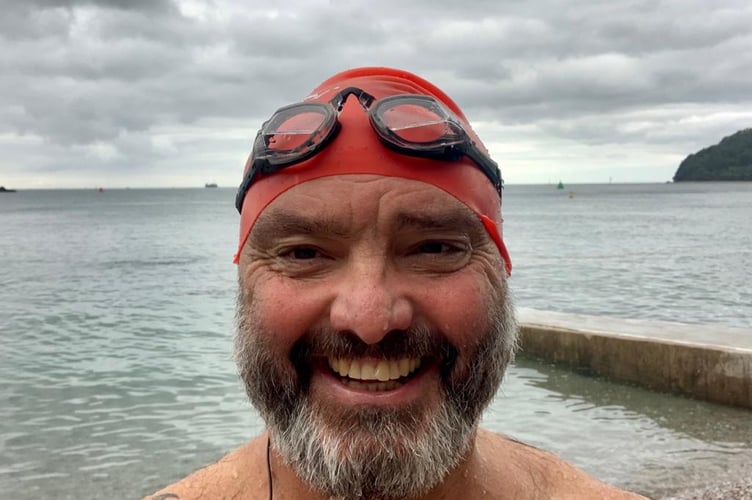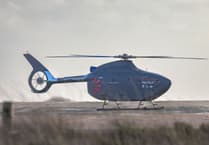An inspirational former Royal Marine amputee from West Devon is taking on his latest epic challenge — swimming the English Channel.
Lee Spencer, of Horrabridge, is renowned for his physical adventures, including rowing the Atlantic, cycling the length of Britain and long-distance skiing, which are all the more amazing because he only has one leg after a road accident.
Lee will join a relay team of swimmers on Saturday (August 26), including injured former service colleagues, each taking a turn to swim the notorious crossing for one hour each over an expected 18-hour duration.
The dangerous swim raises funds for a friend’s charity the Bowra Foundation, supporting people with brain injuries in recovery through their own adventures alongside the armed forces community.
Lee said: “I’m confident, but it’s all in the hands of the weather and tides.”
Lee, will also be joined by a swimmer who is paralysed along one side, one with only one arm and Top Gear presenter Titch Cormack, another ex-colleague in the Iraq War and Special Boat Service veteran, who is also an inspirational speaker like his friend.
Lee explained what makes this yet another particular physical challenge for disabled people: “Swimming with only one leg requires a special technique and makes swimming very difficult. Swimming the Channel is hard enough because of the tides and currents. But I’m weighted on one side to help me swim straight. However, it means I can only breathe on my right side and that automatically forces my leg and arm on opposite sides to spread out to counterbalance me in the water in the manner of a starfish. Doing that causes resistance and I come to a stop in the water. So, it’s really exhausting and slow. I really haven’t had time to think about the swim too much because I’ve been full-on training and giving motivational talks.”
Lee will be talking at the Gone Wild Festival at Powderham Castle, with guest Bear Grylls, this weekend.
He said: “My main motivation is to help my friend Mark who I met when we were in recovery at Headley Court after he had a stroke. He and I have similar motivations in helping people to continue with their recovery through adventurous activities.”
The team has a ten-day weather window to achieve the crossing, which ends up becoming a longer swim than the simple geographic narrowest point due to tides and current pushing against swimmers.
The daring team will follow the Channel Swimming Association rules in wearing goggles, a hat and standard costume with no neoprene. They will be joined by a support boat. Lee has been training with Jose Quiterio of ACE Swimming at Saltash pool and Devil’s Point in Plymouth.He has already had to abort a Channel swim crossing last year as part of his own invention, the Triathlon of Great Britain. But he never gives up: “This swim is great practice for taking up and fishing my own triathlon again some time soon.”
Lee was a serving Royal Marine for 24 years. After coming unscathed through three tours of Afghanistan, he lost his right leg helping a crashed motorist. Although his right leg was severed in the impact, his military training kicked in and he saved his life by explaining treatment to bystanders. Since being discharged from the Royal Marines, his motivational speaking clients have included the England football team, Government ministries and multinational companies. He has recently been adopted as a Guinness World Record mentor for youngsters.
Lee Spencer believes that no one should be defined by their disability and to redefine perceptions, challenge stigma, drive change and ensure everyone has an opportunity to lead a life with dignity.In 2015 Lee was part of the world’s first physically disabled of crew of four to row an ocean. In 2019, Lee became the world’s first physically disabled person to row from mainland Europe to mainland South America solo and unsupported. By doing so, he broke the able-bodied record by an astonishing 36 days and also broke the record for the longest solo and unsupported ocean row by a physically disabled person, a total of four Guinness World records.



.jpeg?width=209&height=140&crop=209:145,smart&quality=75)

Comments
This article has no comments yet. Be the first to leave a comment.